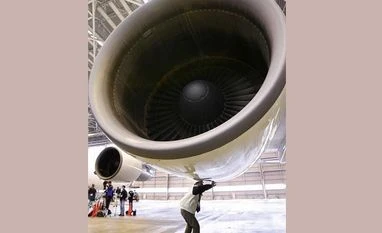Among the major components that the DGCA has asked the engine maker to change are the main gear box and low pressure turbine blades. “No engines from the maintenance unit or any new induction of Airbus A320 and A321neo will be accepted, unless fitted with the new modified gear box and third stage low-pressure turbine blades. There will be a restriction on acceptance of lease engines, too, without the modifications,” the DGCA said in a statement.
While the engine manufacturer said it will be able to deliver the modified engines from March next year, DGCA head Arun Kumar refused to budge on the August deadline considering the repeated incidents caused by the engines.
However, since there were no cases of accident in any part of the world, and with global regulators Federal Aviation Administration and European Union Aviation Safety Agency not having raised any flag, the DGCA refrained from grounding the planes.
“About 40 per cent of the domestic seat capacity of India is powered by Neo engines; any knee-jerk reaction to completely ground operations will have serious consequences. As there are no reported cases of accident involving these engines in any part of the world, will it be prudent to shut their operations?” the DGCA said in its note.
The direction came after an hour-long meeting with executives of Airbus, Pratt & Whitney, IndiGo, and GoAir. IndiGo and GoAir together operate 127 A320neo aircraft fitted with P&W engines. The meeting was called after the regulator took notice of increasing incidents over the last one month.
The DGCA has been stricter than other international regulators with its directions regarding the engines.
For instance, it has fixed compulsory boroscopy inspection of engines after 375 hours, and has asked airlines to replace the engines in case of any malfunction. In boroscopy examination, aircraft engines are remotely checked for defect.
The extra scrutiny led to a sharp rise in the engine replacement rate for IndiGo and GoAir, which caused increased grounding and higher maintenance costs.
Further, the regulator hasn’t allowed ETOPS (Extended Range Twin Operational Performance Standard) approval to A320/A321 Neo with P&W engines, yet. This approval is required for twin-engine aircraft to take routes for which the nearest suitable airport, to make an emergency landing, is more than 60 minutes away. However, global regulators have given ETOPs certification to the engines.
“India is a conservative country regarding passenger safety. We don’t take any risk that could lead to loss of life. So we have directed extra scrutiny even though there is no such precedence globally,” said a senior DGCA official.
The geared turbofan has been hit by a slew of design flaws which has caused planes to be grounded, delayed deliveries, and has prompted millions of dollars in compensations.
In 2016, the aircraft started reporting oil metal detector warnings. The third engine-bearing compartment had a seal that did not work correctly at high flight levels.
The third problem pertained to combustion chamber linings, which had unforeseen hot spots, thus reducing operational life. The fix provided was a combustion chamber with more pores that could provide more cooling.
To read the full story, Subscribe Now at just Rs 249 a month
Already a subscriber? Log in
Subscribe To BS Premium
₹249
Renews automatically
₹1699₹1999
Opt for auto renewal and save Rs. 300 Renews automatically
₹1999
What you get on BS Premium?
-
Unlock 30+ premium stories daily hand-picked by our editors, across devices on browser and app.
-
Pick your 5 favourite companies, get a daily email with all news updates on them.
Full access to our intuitive epaper - clip, save, share articles from any device; newspaper archives from 2006.
Preferential invites to Business Standard events.
Curated newsletters on markets, personal finance, policy & politics, start-ups, technology, and more.
Need More Information - write to us at assist@bsmail.in
)